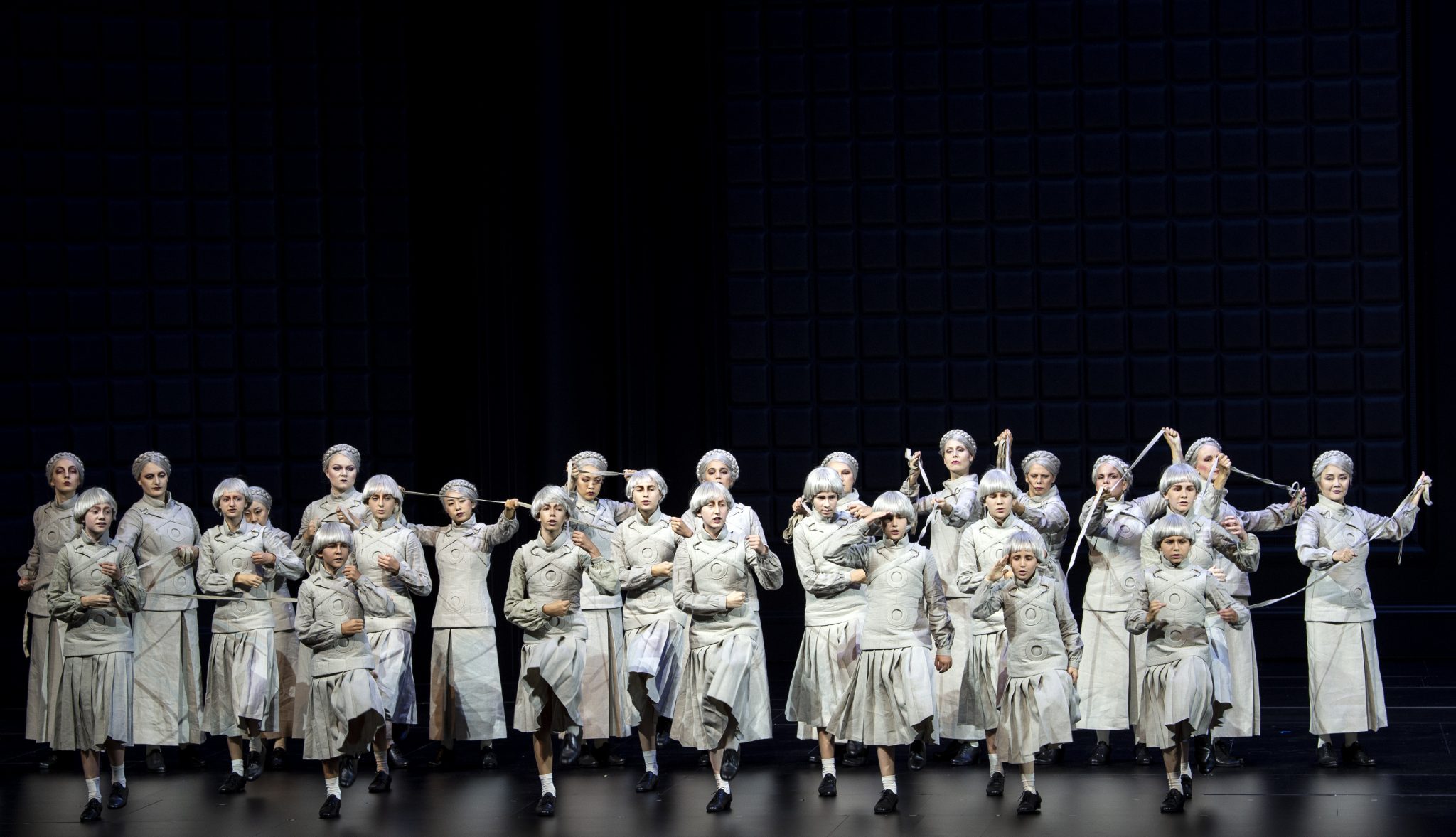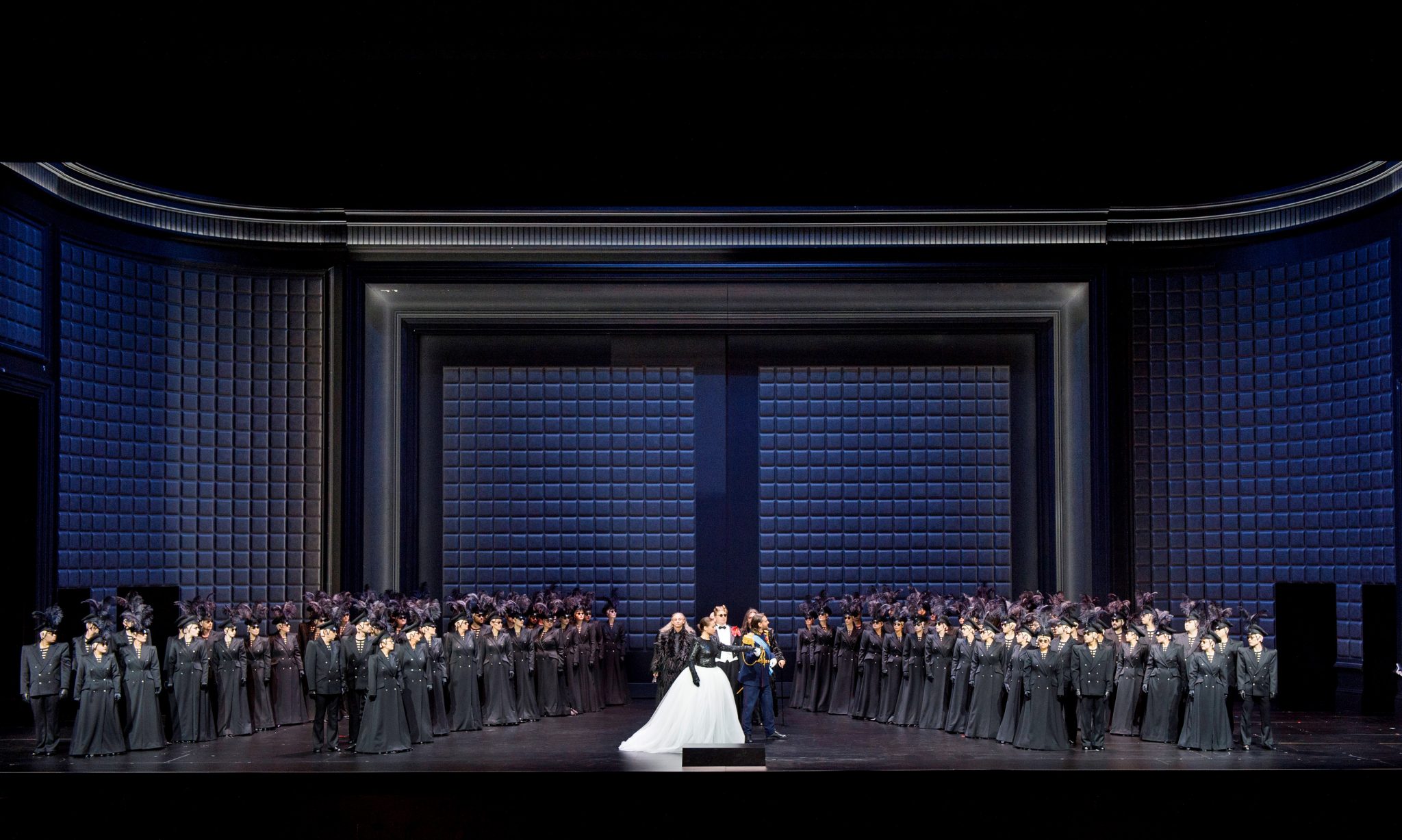SALZBURG PLAYS A TRUMP CARD WITH “QUEEN OF SPADES”

A magnificent show of Tchaikovsky’s dramatic tragedy was performed for the sixth time on 25th August to an appreciative audience.
The opera by Tchaikovsky has a libretto by his brother Modest based on a novel by Alexander Puchkin. The premiere took place in 1890 in St. Petersburg’s Mariinsky Theatre. After turning down a commission by the Imperial Theatre he later reneged and completed the full score in Florence in only 44 days.

The lead character Herrmann sings in all 7 scenes of the three act opera. This requires great skill and endurance by the performer. The part was written with the Russian tenor Nikolay Figner in mind with his wife Medea Mei-Figner creating the role of Liza.

Act I scene 1 opens during the reign of Catherine the Great with children pretending to be soldiers playing in the Summer Garden. Some soldiers are discussing Hermann’s obsession with the gambling table although he does not bet. Hermann admits he is in love with a girl above his station whose name he does not even know.

Prince Yeletsky walks in and is congratulated on his recent engagement. Yeletsky points out his fiancée Liza who has just appeared with her grandmother, the old Countess. The old Countess and Liza immediately recognise Hermann who has been staring at them with frightening intensity. Yeletsky and the women leave. Hermann is lost in thought as the other officers discuss the Countess known as The Queen of Spades and formerly the Muskovite Venus due to her beauty.

She succeeded at gambling in her youth by trading amorous favours for the winning formula which only two men, her husband and later on her young lover ever learned. She was warned by an apparition to beware a “third suitor”. Hermann vows to find the secret formula which will put an end to his financial miseries. In scene 2 Liza is passing her time singing songs and folk dances with Pauline her friend. Liza remains pensive and the Governess asks the visitors to leave. There upon Hermann enter and Liza inspite of herself falls into his embrace professing love.

Act II at a masked ball: Hermann’s comrades comment on his obsession with the secret of the winning cards. Yeletsky passes with Liza noting her sadness reassuring her of his love in the aria ya vas lublyu. During the ensuing tableau Liza slips Hermann the key to the Countess’ room.

The second scene takes place in the Countess’ room where Hermann is struck by a portrait of the beautiful Muskovite Venus. The Countess appears while Hermann hides himself. The old Countess muses on how life has changed since her youth in Paris singing an aria from Grétry’s opera Richard Coeur-de-Lion. Hermann appears pleading with her to tell him her secret. He threatens her with a pistol at which she dies of fright. Liza enters understanding that Hermann is more interested in the secret of the cards rather than her. Act III scene 1 is set in Hermann’s room at the barracks. The old woman’s ghost appears announcing that she must tell him the secret so that he can marry and save Liza. Hermann repeats the three cards – three, seven, ace.

Scene 2 is set by the Winter Canal. Liza waits for Hermann’s arrival. When he comes he starts to babble about the Countess’ secret. Realising the all his lost Liza commits suicide. In the last scene at a gambling house Hermann appears intent to win with his secret formula. In his delusional state he bets huge amounts of money winning the first two cards but when he bets everything he has won on his ace he loses all his money as he is holding the queen of spades.
Outstanding in the cast was veteran Hanna Schwarz as the Countess. Her worldwide acclaim in past roles revealed an authority rare in today’s operatic world. She transforms the state at her every appearance singing the Grétry aria with hushed beauty of tone. It will be remembered that she sang Fricka in the centenary Ring of Chéreau and Boulez at Bayreuth. She also made a fine Brangaene and Dorabella. The role of Prince Yeletsky was sung by Russian baritone Igor Golovatenko singing his famous aria in the ball room scene with much beauty of tone, elegant phrasing and a more than impressive presence. American tenor Brandon Jovanovich has a high voice used with much facility and elegance. He did not have the baritonal timbre which is so necessary in such a robust role but nonetheless did not seem tired after such a long haul.
Above all no praise can be enough for Mariss Jansons who led the Vienna Philharmonic with subtlety and sonorously keeping the action moving forwards with excellent pacing. An exciting evening well spent at the opera!





